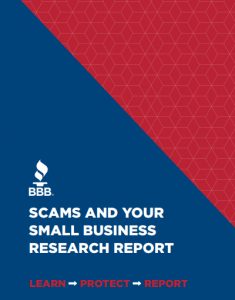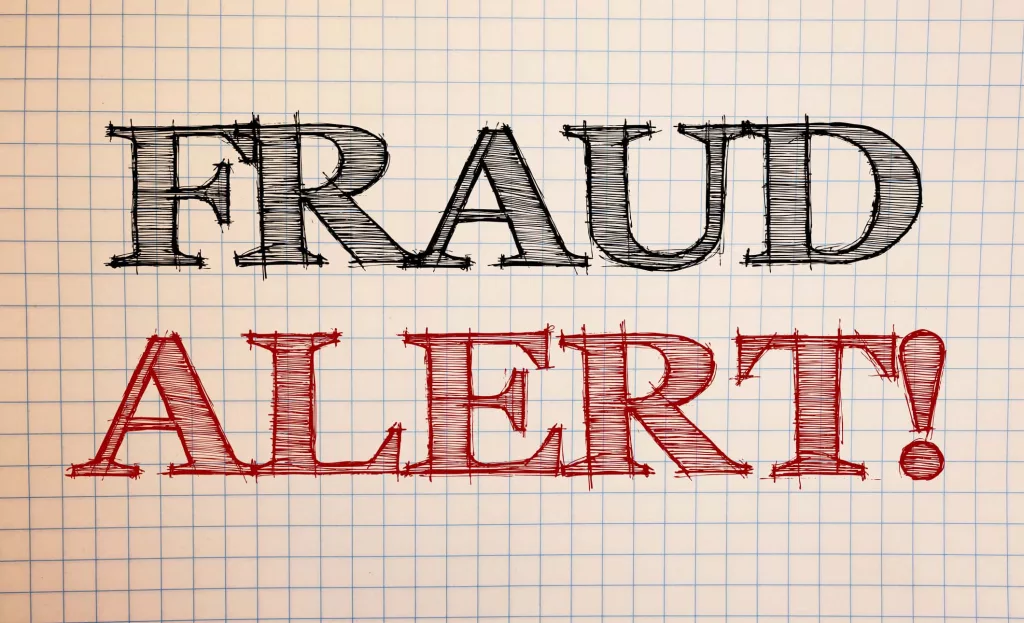They always pretend to be someone you trust. Unfortunately, they also create a sense of urgency trying to force you into making a quick decision without fully looking into the situation at hand. That’s why the attacks on small businesses and non-profit organizations can prove to be so lucrative to the crooks in our midst determined to get your money, goods, or resources through fraud and scams.
In a robust attempt to stem the rapidly rising tide of scams against the business community, the Better Business Bureau Serving West Michigan is teaming up today with the Federal Trade Commission and law enforcement officers across the region to roll out Operation Main Street: Stopping Small Business Scams.
Unleashed this morning in Grand Rapids, the new campaign is an enforcement initiative targeting operations seeking to defraud your small business as well as an educational outreach effort to help your enterprise protect itself from fraud.
Phil Catlett is President & CEO of the Better Business Bureau Serving West Michigan. He and FTC Attorney Jon Kessler, a co-organizer of Operation Main Street, are joined today by Attorney Jennifer Puplava of Mika Meyers addressing the various types of scams and how your business can best protect itself.
Federal Trade Commission Chairman Joe Simons says, “Millions of U.S. consumers either own or work at small businesses nationwide, and the FTC is happy to join with our law enforcement partners and the BBB to help stop scams and spread the word about how they can identify and avoid scams targeting their livelihood.” He adds that, “A top FTC priority is to stem the tide of fraud against small businesses.”
If you own a small business or are part of a non-profit organization, you spend a lot of time and effort making sure the organization works well. But, when scammers go after you, it can hurt your reputation as well as your bottom line. Your best defense, according to the BBB, is to learn the signs of scams that target businesses and then tell your employees and colleagues what to look for so they can avoid the scams.
The BBB offers several suggestions for the protection of your business:
- Your best defense is an informed workforce. Explain to your staff how scams happen and train them on what to watch for.
- Encourage people to talk with coworkers if they spot a scam. Scammers often target multiple people in an organization, so an alert from one employee about a scam can help prevent others from being deceived.
- Train employees not to send passwords or sensitive information by email, even if the email seems to come from a manager. Then, follow your own rules — don’t ever ask for sensitive data from employees by email.
- Check all invoices closely. Never pay unless you know the bill is for items that were actually ordered and delivered. Tell your staff to do the same.
- Make sure procedures are clear for approving invoices or expenditures. To reduce the risk of costly mistakes, limit the number of people authorized to place orders and pay invoices. Review your procedures to make sure major spending can’t be triggered by an unexpected call, email or invoice.
- Pay attention to how someone asks to be paid. Tell staff to do the same. If you are asked to pay with a wire transfer, reloadable card, or gift card, you can bet it’s a scam.
- Don’t believe your caller ID. Imposters often fake caller ID information so you’ll be more likely to believe them when they claim to be a government agency or a vendor you trust.
- Remember that email addresses and websites that look legitimate are easy for scammers to fake. Stop and think about whether it could be a scam before you click. Scammers can even hack into the social media accounts of people you trust and send you messages that appear to be from them. Don’t open email attachments or download files from unexpected emails; they may have viruses that can harm your computer.
- Secure your organization’s files, passwords, and financial information.
- Before doing business with a new company, search the company’s name online with the term “scam” or “complaint.” Read what others are saying about that company. Check BBB.org to read about past customers’ experiences and how the company addressed complaints.
- When it comes to products & services for your business, ask for recommendations from other business owners in your community. Positive word-of-mouth from trustworthy people is more reliable than any sales pitch.
- Don’t pay for “free” information. You may be able to get truly free business development advice and counseling through programs like Score.org.
Scammers use lots of methods to rip your small business off including such things as:
- Fake Invoices that look like they’re for products or services you regularly use…
- Un-ordered Office Supplies and other products from someone calling to “confirm” an existing order for such items…
- Directory Listings and Advertising Scams from con artists trying to fool you into paying for non-existent advertising or listings in a non-existent directory…
- Utility Company Imposter Scams pretending to call from the gas, electric or water companies threatening interruption of services…
- Government Agency Imposter Scams threatening to suspend your business license, impose fines, or legal action if you don’t pay taxes, renewals or other fees…
- Tech Support Scams that start with a call or an alarming pop-up message pretending to be from a well known company telling you there’s a problem with your computer security…
- Social Engineering, Phishing and Ransomware from cyber scammers working to trick employees into giving up confidential or sensitive information like passwords or bank info…
- Business Promotion & Coaching Scams selling bogus coaching and Internet promotion services through fake testimonials, videos and seminar presentations…
- Changing Online Reviews from scammers claiming they can replace negative reviews about your product or service, or boost your scores on rating sites…
- Credit Card Processing & Equipment Leasing Scams like the one that hit downtown St. Joe merchants just last week, deceptively promising lower rates, and so on…
- Fake Check Scams that happen when a scammer overpays with a check and asks you to wire the extra money to a third party. They always have a good story to explain the overpayment, but by the time the bank discovers you’ve deposited a bad check, the scammer already has the money you sent them. Don’t do it.
Operation Main Street research suggests that the scam activity directed at small businesses is growing and they pose a significant risk, while also resulting in a higher monetary loss per incident than those that target individual consumers.
Recognizing that such scams can reach and impact every business regardless of location, size, industry or length of time in business, the Better Business Bureau Serving West Michigan has assembled a comprehensive 40-page report on the matter to help combat small business scams in general by customizing their research, reporting and educational outreach.
Click the link below to read the entire report with lots of detailed information on this critical issue:







